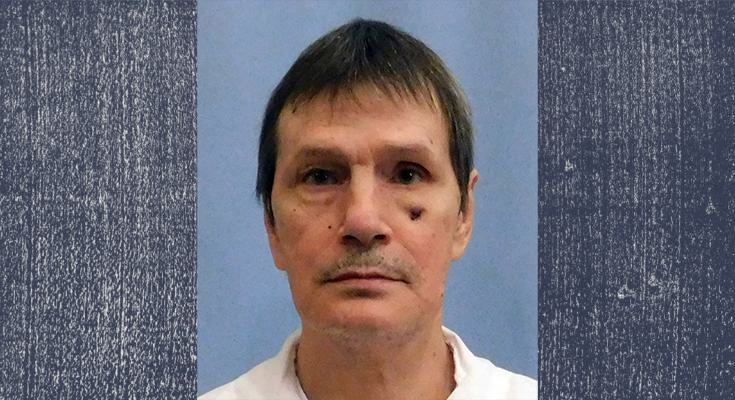By Craig Monger
An Alabama inmate, who survived a botched execution in 2018, has died from cancer-related complications.
Doyle Hamm died on Nov. 28 due to complications from his long-term fight with cancer. Hamm was convicted of murder in 1987 after confessing to the murder of Patrick Cunningham, a motel clerk. Hamm, who had been on an interstate crime spree, confessed to killing Cunningham during a robbery.
Hamm was on death row for over 30 years due to multiple appeals by his longtime attorney Bernard Harcourt. Harcourt, who represented Hamm for nearly his entire imprisonment, engaged in multiple appeal attempts since Hamm was sentenced to death.
Hamm had previously been subject to a failed execution attempt in 2018, surviving only because the execution team could not find a vein, and the midnight time limit had expired on his death warrant.
Hamm had been diagnosed with a lymphoma behind his eye in 2014 and received radiation therapy to treat the cancer for over three years. He was scheduled to undergo surgery on Dec. 17, 2017, to remove the mass that had worsened to the point of visibly consuming his facial tissue, as well as spreading to his lymph nodes. On the day of the scheduled surgery, Hamm’s death warrant was signed, his execution was scheduled, and his surgery was canceled.
Leading up to the execution, lawyers, activists, journalists, healthcare workers, and family members had expressed concerns about Hamm’s execution. Hamm’s cancer treatment led healthcare workers who had previously treated him to express their difficulties in accessing veins. Hamm also had a history of intravenous drug use, which further complicated vein access. Hamm’s diagnosis led many to wonder if the cancer treatment, and additional venous issues, would cause Alabama’s lethal injection protocol to wander into the realm of cruel and unusual punishment.
Agnes Callamard, and Nils Melzer, both Special Rapporteur’s with the U.N. Human Rights Council issued a statement asking for a stay of Hamm’s execution.
“We are seriously concerned that attempts to insert needles into Mr. Hamm’s veins to carry out the lethal injection would inflict pain and suffering that may amount to torture,” they stated. “The planned method of execution, using Alabama’s three-drug protocol, may also have torturous effects, because the sedative used is incapable of keeping a convict unconscious in the presence of the excruciating pain likely to be induced by the other drugs.”
Special Rapporteurs are independent experts appointed by the U.N. Human Rights Council with the mandate to monitor, advise and publicly report on human rights situations in various countries.
On Feb. 2, the U.S Supreme Court issued a stay of Hamm's execution and then, hours later, rescinded the same order. The execution moved forward, and Hamm was brought from his cell and prepped for the injection. Hamm was strapped to a gurney during the preparation process, and the execution team attempted for almost three hours to find a usable vein. When the veins in his arm and legs proved unfruitful, they tried to access his veins through his groin. During the process, they punctured his bladder and nicked his femoral artery, causing pain and excessive bleeding. Despite the efforts, a usable vein was not found in time, and the death warrant had expired.
According to Harcourt, Hamm could not stand up after he was taken off the gurney.
“After multiple, repeated attempts, the IV execution personnel stated aloud that they could not get anything,” Harcourt said. “With peripheral access unavailable, other IV execution personnel next attempted central venous access. Multiple times, they tried to insert a catheter into Doyle Hamm’s right groin, causing severe bleeding and pain. The execution was ultimately called off at approximately 11:27 PM.”
In the days following the botched execution, Hamm was visibly limping and had been urinating blood.
On March 5, 2018, Hamm filed a civil rights lawsuit against the Alabama Department of Corrections, stating that a second attempt at execution would violate his fifth and eighth amendment rights. Hamm reached a confidential settlement with the state on March 26, 2018. All of the settlement details were not released, but it did prevent any subsequent attempts at execution.
Hamm’s botched execution received national attention in the months and years following and was featured in the New Yorker, New York Times, HuffPost, The Intercept, and others.
To connect with the author of this story, or to comment, email craig.monger@1819News.com.










